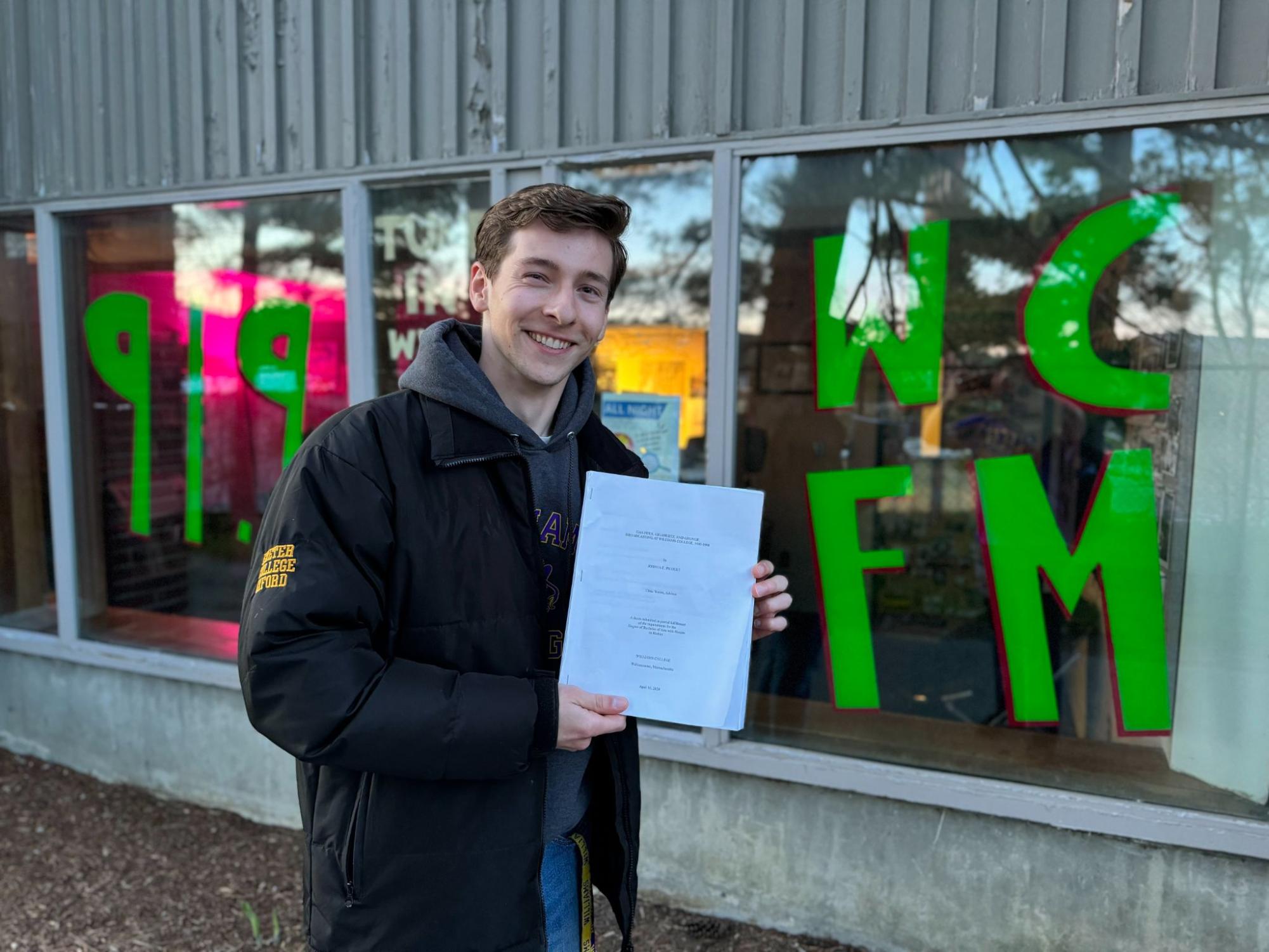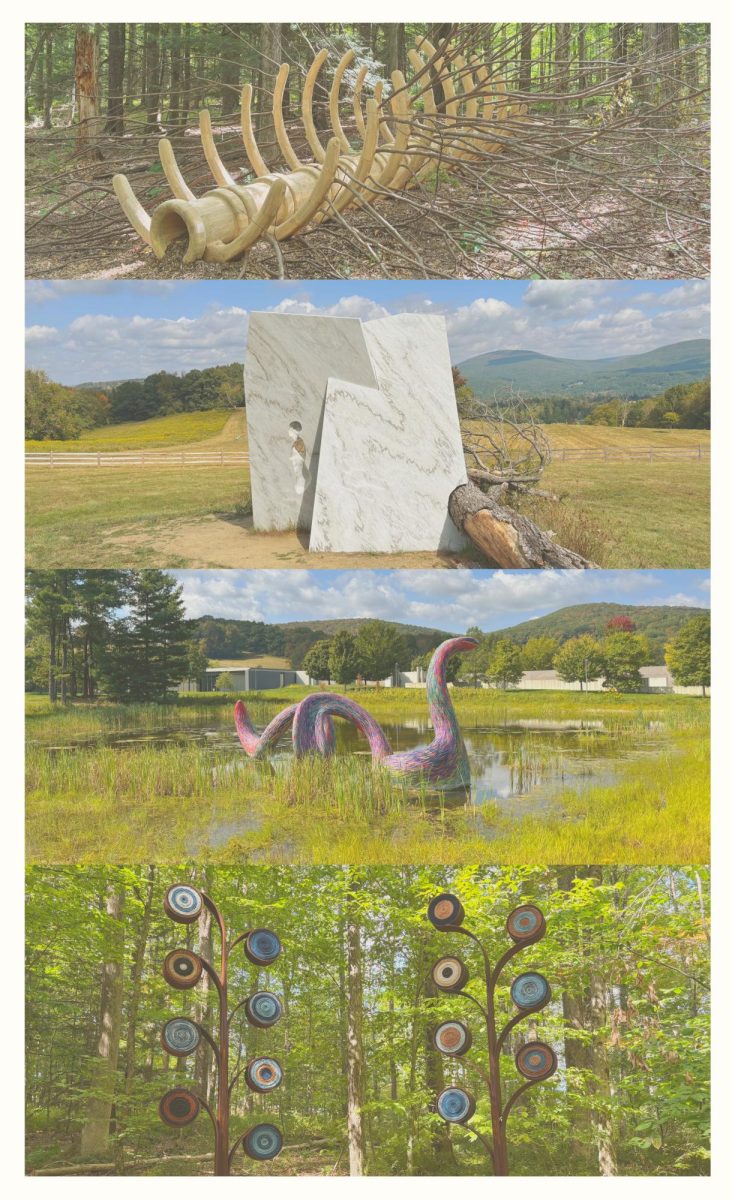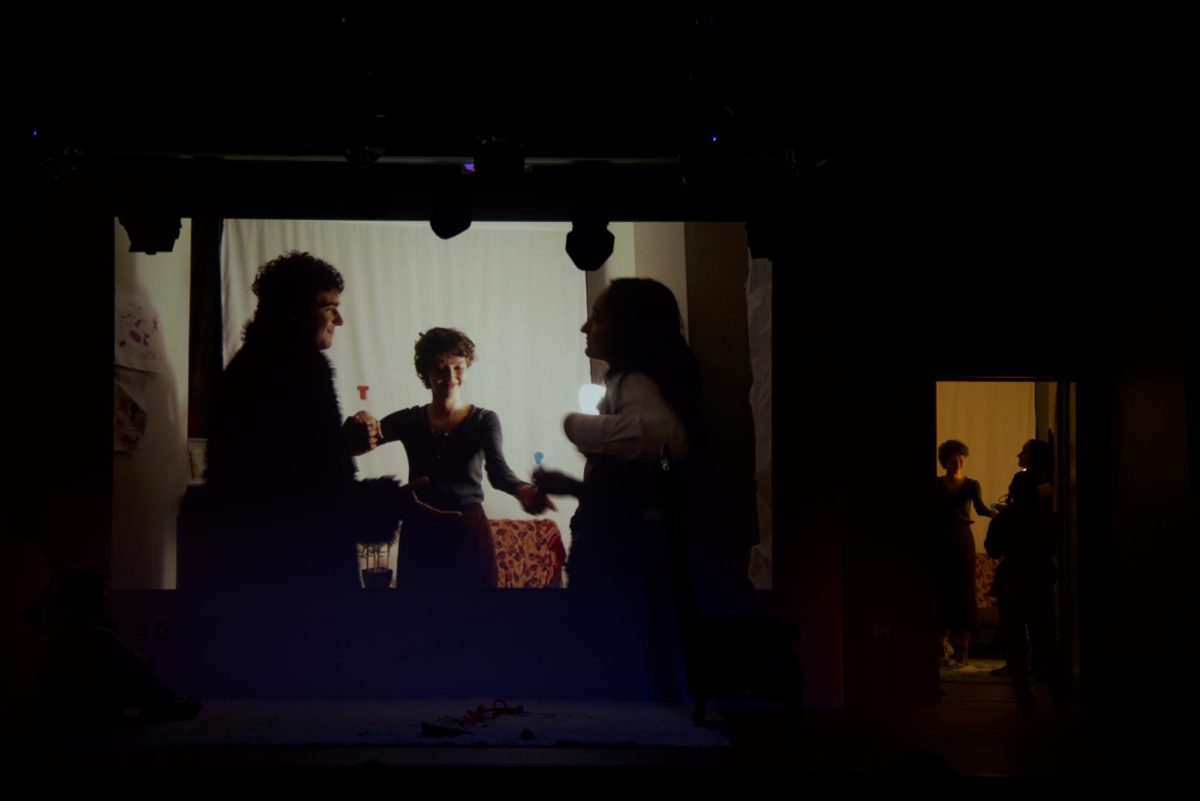
Established in 1940, WCFM has long stood as the cornerstone of student voices, activism, and music. With over 120 shows a week, WCFM currently hosts almost 140 DJs, including students, faculty, and community members, and reaches North Adams, Pittsfield, and Bennington. Nestled in Prospect House basement, the WCFM recording studio’s poster-lined walls and vinyl-strewn floors represent a rich history. This prolific archive drew General Manager Josh Picoult ’24 to make the radio station the focus of his senior honors thesis in history, titled “Gas pipes, Gigahertz, and Grunge: Broadcasting at Williams College, 1940-1998,” which he defended on May 1.
Picoult joined WCFM the fall of his sophomore year, quickly developing a passion for the station’s operations and archives. Now as one of the station’s leaders, Picoult remains committed to the free form nature of WCFM, apart from rules set by the Federal Communications Commission. “There’s no single image for WCFM,” Picoult told the Record. “Nearly 140 DJs who are currently involved each have a different use and different idea of what they want to broadcast and to whom they believe they’re broadcasting. That’s what I believe is pretty great about this place.”
Picoult described his thesis as an examination of WCFM as a rich archive of student engagement with radio. “It proposes that campus stations are very vibrant and involved not just in campus life, but national trends in broadcasting,” he said. “In different moments in WCFM’s history, different issues emerge that students struggled with and what they believed to be the purpose of the station.”
Picoult noted the unconventionality of his thesis. “It was a project that drew heavy skepticism from the history department when I approached them about it last spring,” he said. “The original proposal was rejected outright.” But Picoult eventually persuaded the department to accept his proposal, arguing that WCFM was an unmined archive of student engagement with radio and a window into a more complete history of American non-commercial broadcasting.
When Alan Eurich ’43 founded WCFM in 1940 — then called WMS — it was completely off air. It first operated out of Sage Hall and relocated many times, including to the squash courts, Jesup Hall, Baxter Hall, and now its current location in Prospect. In 1957, the station moved to public FM.
While much of the material Picoult used for his thesis came from Special Collections, a significant portion was located within the station itself, such as letters, zines, and posters. “I did not have to look very far to find the evidence for this project because DJs have preserved all this material and conversations about their station by way of neglect,” he said. “Over 80 years, the station has collected all of this material that no one has really sorted through. All of these conversations are here but they remain unexplained.”
Over the past year, Picoult conducted 72 interviews with alums — spanning from the Class of 1958 to the Class of 2000 — who DJed at WCFM during their time at the College. “A large component of the project is piecing this story back together, reaching out to alums, talking to them about what they did on WCFM, who they thought they were broadcasting to, and what they played,” Picoult explained. “I’m encountering material that no one has looked at before there’s really no guidelines here about how the station worked.”
Elijah Washington ’24, one of WCFM’s general managers, echoed this sentiment. “As this college changes — physically or otherwise — I urge the College to both respect and support the tradition of student radio,” he wrote to the Record.
In March, Picoult brought around 24 DJ’s to campus for an alum throwback weekend where they interviewed each other on air. He reflected on their passion for WCFM. “It spoke to the fact that so much of the archive I’m working with is living and many former DJs still have a vested interest in the station and care very much about it,” he said. “I was happy to put all their experiences together in one place in my thesis.”
When sifting through the station’s archives, Picoult found a letter from February 1973 from Christopher West ’72, a previous general manager, to Barbara Rubin ’75, the first female general manager. “I felt that it could almost be addressed to me, this former general manager reminding me of the struggles of college radio and defining WCFM’s identity, issues I struggle with today and my board struggles with,” he said. “That letter made me realize that students cared about the station to the extent of penning a five-page letter to someone — like a president handing over the Oval Office.”
Picoult offered his final thoughts upon completing his thesis. “There is no single answer here to what DJs should do, how a station should present itself,” he said. “Where a station thrives is where those lines are the most ambiguous – where students are able to and encouraged to define the airwaves for themselves.”
Picoult said he hopes his thesis will inspire students to explore the history of WCFM. “The thesis I wrote is not the full story of WCFM,” he said. “I used only a fraction of the total material I discovered, and there’s certainly room for future researchers — future students — to use these documents. That’s part of my hope in contributing this material to Special Collections is that people can come in and fill the gaps.”








